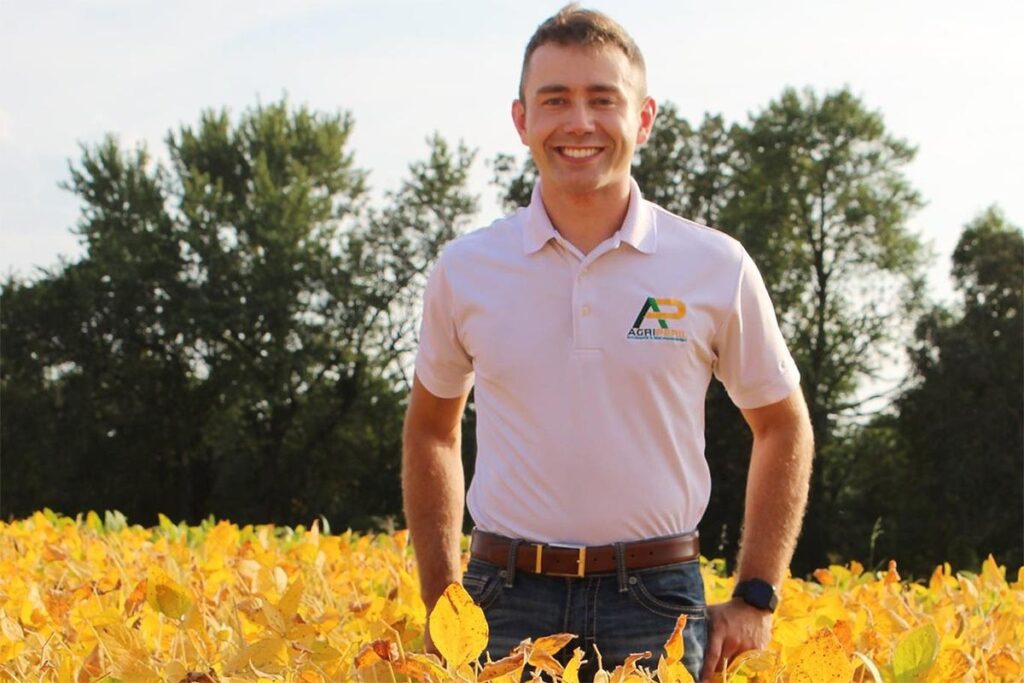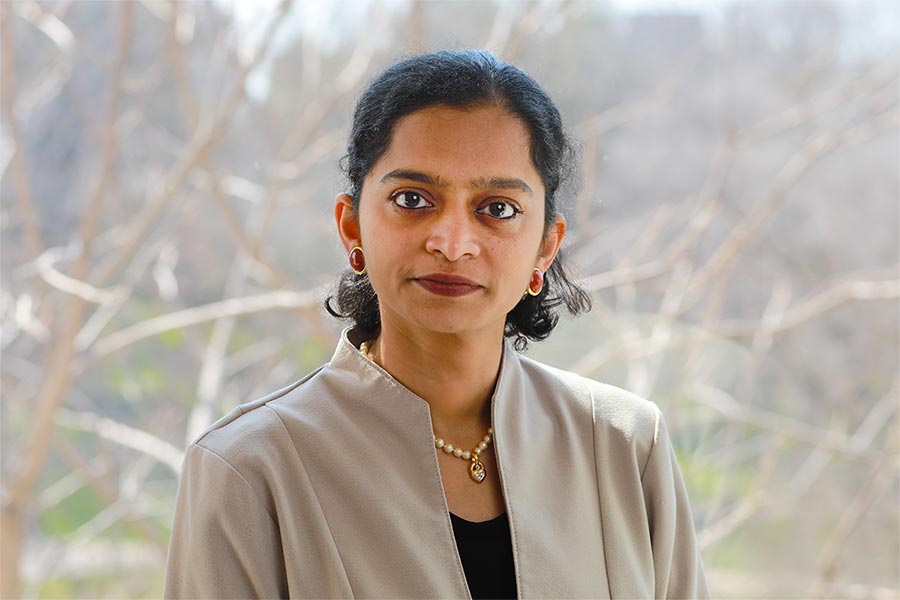
Ivy professor partners with peers across campus to solve real-world data challenges using AI
Priyanka Jayashankar, adjunct assistant professor in marketing at the Ivy College of Business, spent months working with peers across campus to prepare the first farmer-engaged hackathon at the university, which they christened a TrACathon.
“It may be the only one in the Midwest,” Jayashankar said. “I know of no others like it.”
What is an AI hackathon?
It’s an event where people engage in rapid and collaborative engineering over a relatively short period of time, sometimes 24-48 hours. AI hackathons enable data scientists to solve real-world data challenges using artificial intelligence and machine learning. To maximize human potential, they leverage AI to develop creative solutions.
The hackathon, held on March 2 at the Iowa State University Student Innovation Center, was a true partnership across campus as Jayashankar worked with colleagues at the College of Engineering, the College of Agriculture and Life Science, and the Iowa State University Translational AI Center (TrAC).
As part of the event, student-led teams developed AI tools for agriculture, which were later judged by diverse farmers and some agriculture business representatives. Graduate and undergraduate students with science and engineering skills and agricultural interests or experience were encouraged to participate.
The event helped to connect agricultural practice with real-life potential AI solutions that can be integrated into future farming operations, according to Reed Burres (‘17 agricultural business, international agriculture), owner of AgriPeril Risk Management, LLC.
“My role was to serve as a judge and utilize my perspective as not only a farmer, but someone who is actively looking for ways to utilize technology further and more effectively in our operation,” Burres said.
 “My research with immigrant farmers and AI adoption in agriculture served as an inspiration for the event. The intent of the event was to make AI solutions relatable to farm operations of different sizes and also to make the innovation process more bottom-up.”
“My research with immigrant farmers and AI adoption in agriculture served as an inspiration for the event. The intent of the event was to make AI solutions relatable to farm operations of different sizes and also to make the innovation process more bottom-up.”
— Priyanka Jayashankar, adjunct assistant professor in marketing
The event took months of preparation with close consultations with farmers and it was well-received, according to Jayashankar.
“My research with immigrant farmers and AI adoption in agriculture served as an inspiration for the event,” Jayashankar said. “The intent of the event was to make AI solutions relatable to farm operations of different sizes and also to make the innovation process more bottom-up.”
She worked with Jessica Bell, Aditya Balu, and Zhanhong Zhang from TrAC and Professor Madhu Viswanathan of Loyola Marymount in Los Angeles, California, to organize the event. Viswanathan held a market immersion session with Ron Duncan, a farmer from Illinois.
There were incentives for students and farmers to participate in the inaugural event.
Students could level up their AI and digital agriculture skills. They could also win cash prizes for first, second, and third places.
For farmers, it gave them a voice in the area of innovation. They could work with Iowa State student teams to develop agriculture technology tools. They were also compensated for participating.
Each team was allowed to select one challenge problem to work on:
- Computer vision for plant disease detection.
- Computer vision for plant pest detection.
- AI for agriculture weather prediction (precipitation, soil moisture, drought, snow cover, etc.).
- AI for crop yield prediction.
The event was sponsored in part by the Iowa State AI Institute for Resilient Agriculture.
“One objective of the institute is to ensure our AI tools are accessible to all,” said Jessica Bell, assistant director of the Translational AI Center at Iowa State, also an event sponsor. “The best way to achieve our goal is to engage directly with farmers. Our first TrACathon made the process engaging for both the students and farmers alike.”
The Translational AI Center’s goal is to develop AI solutions for the real world. They do this through collaborations between academia (faculty, students, and researchers) and industry. They bring together core Iowa State artificial intelligence researchers and subject matter experts interested in applying new technologies to their work, then translate the work to be shared with students and industry.
Iowa State University’s first hackathon theme: Smart Digital Agriculture
- A bottom-up approach to innovation by bringing together farmers and student teams to develop AI tools.
- Showcase how AI can be scale-agnostic and beneficial to smaller-scale farmers to participate in markets.
- Revolutionize AI applications across farm operations intelligence.
- Immersive sessions to gain insights into ground-reality of farmers and find the meeting point of bottom-up community needs with top-down emerging technologies.


March 29, 2024

